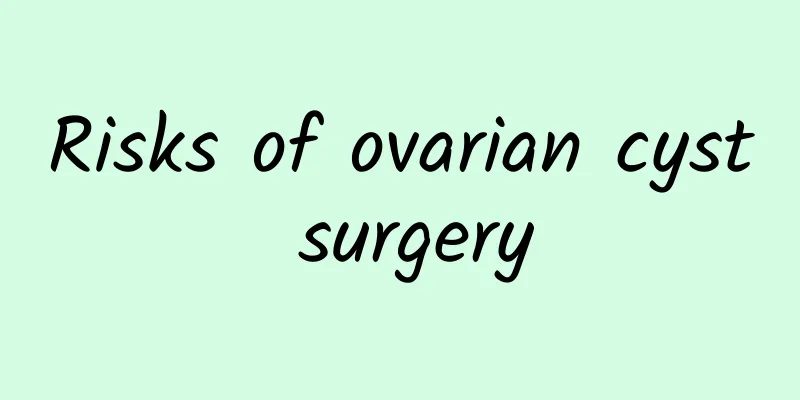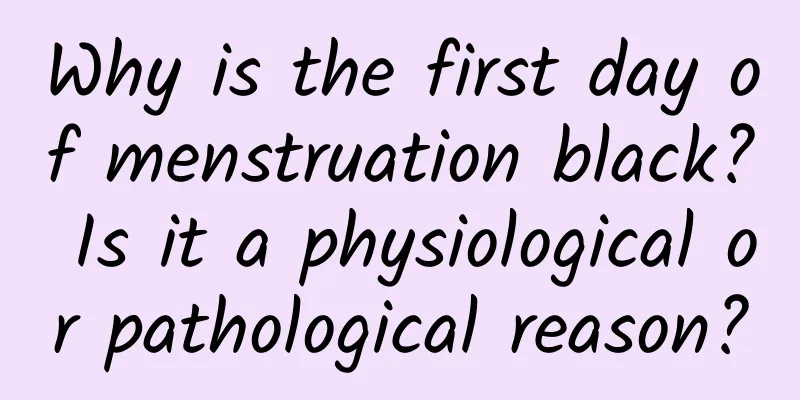Risks of ovarian cyst surgery

|
Risks of ovarian cyst surgery: If ovarian cysts are not treated for a long time, they will seriously endanger women's health. In order to get rid of the disease as soon as possible, many patients will choose surgical treatment. Although surgical treatment is effective, if it is used improperly, its harm is relatively large. Common hazards after ovarian cyst surgery can cause infection, delayed menstruation, affect the normal function of the ovaries and fallopian tubes, and even induce various gynecological diseases. 1. Cause infection Most surgeries for treating ovarian cysts are cystectomies. Bleeding and wounds are inevitable during surgery. If the amount of bleeding during trauma is not well controlled, the wound is prone to postoperative infection. Postoperative infection may be one of the sequelae of ovarian cysts. Patients who undergo ovarian cystectomy must pay attention to anti-inflammatory treatment to avoid infection. 2. Delayed menstruation Because ovarian cysts will be removed during surgery, ovulation may be delayed after the operation, thereby disrupting the original ovulation cycle and directly affecting the arrival of menstruation, so it is likely to affect women's mood changes. 3. Affect the normal function of the ovaries and fallopian tubes In the process of removing ovarian cysts, in addition to removing the lesion, it may also be necessary to peel off the fallopian tubes attached to the ovaries to prevent the attached fallopian tubes from failing to ovulate normally. During the operation, sequelae of abnormal ovarian and fallopian tube fimbria function may occur. 4. Inducing gynecological diseases If the postoperative sequelae are serious, it may cause the female immune system to collapse and easily induce gynecological diseases, which may be various gynecological diseases, vaginal diseases, or cervical diseases. Because the immunity will decrease after surgery, a physical examination must be performed before the operation. Timely surgery when there are no other abnormalities in the body can reduce complications and sequelae. |
<<: Androgens can be used to treat uterine fibroids
>>: What are the early symptoms of ovarian cysts and how to treat them effectively
Recommend
Can abnormal leucorrhea indicate pregnancy?
Abnormal leucorrhea is not directly related to pr...
What medicine can I take to eliminate uterine fibroids?
Regarding the drug treatment of uterine fibroids,...
Experts teach you the secret to changing your body curves in a short time! Stimulating the back has 3 major benefits, making it easy to reduce age without any effort
The secret to changing your body curves in a shor...
Can pelvic effusion cause fallopian tube obstruction?
There are six reasons why fallopian tubes are blo...
Four groups of people who are prone to ectopic pregnancy
When the fertilized egg stays outside the uterine...
Does polycystic ovary cause severe dysmenorrhea?
Does polycystic ovary cause severe dysmenorrhea? ...
New topic of weight loss: African mango seed extract is actually...
Smiling Pharmacist Network has recently written a...
A brief discussion on several nursing measures for vulvar leukoplakia
Vulvar leukoplakia is hereditary and very harmful...
What are the methods to relieve congenital absence of vagina?
Congenital absence of vagina is a common congenit...
What are the symptoms of acute adnexitis?
Acute adnexitis is a common disease. Do you know ...
How to treat vaginitis
In life, vaginitis has affected the normal life o...
Eliminate fat and sweat slightly 333 exercise method
Maintain the 333 Movement Principles It takes abo...
The three main causes of ovarian cysts
What causes ovarian cysts? This is a question tha...
What is the root cause of threatened miscarriage?
What is the root cause of threatened abortion? Be...
How to self-examine for patients with uterine fibroids
Uterine fibroids, also known as uterine leiomyoma...









